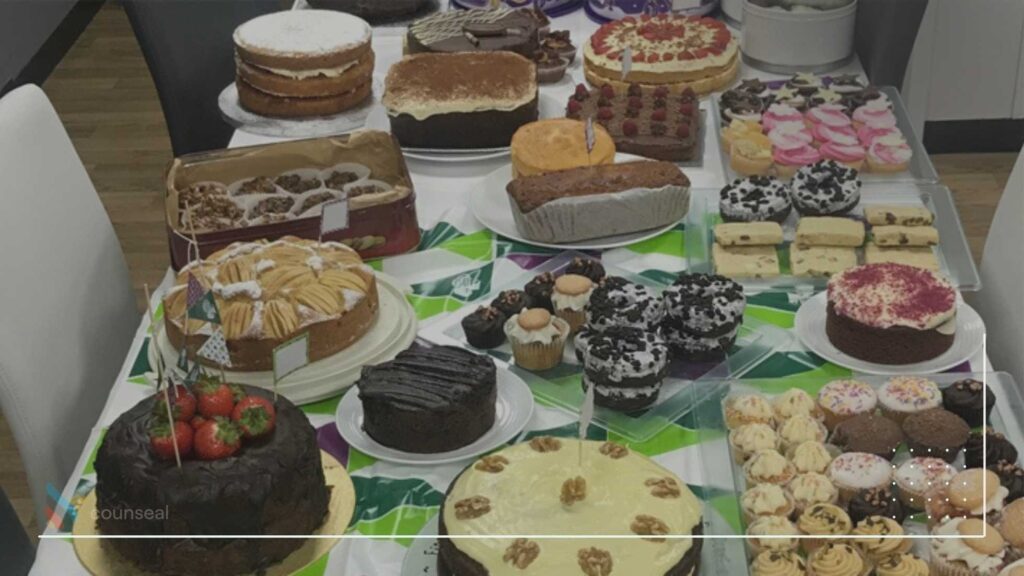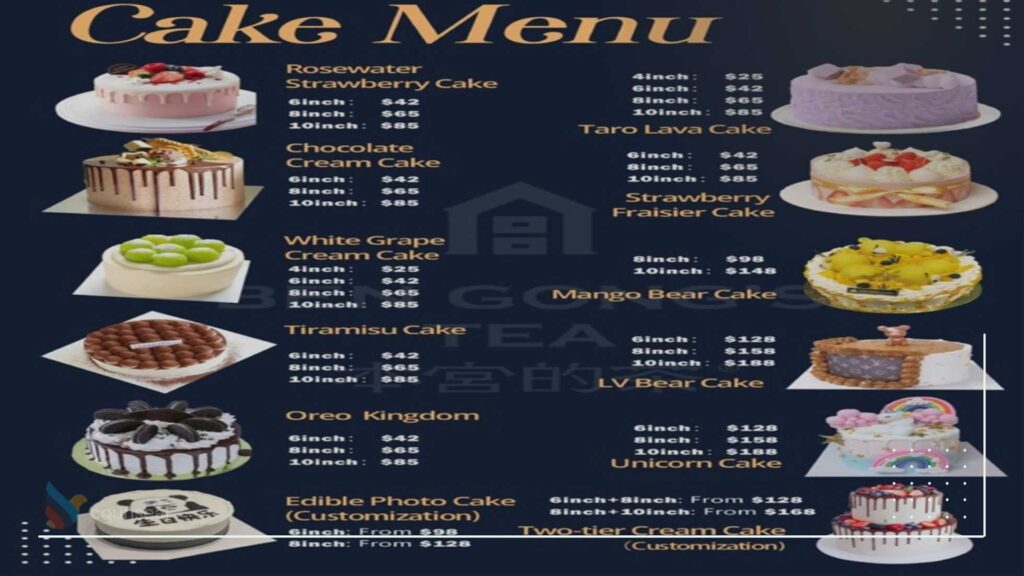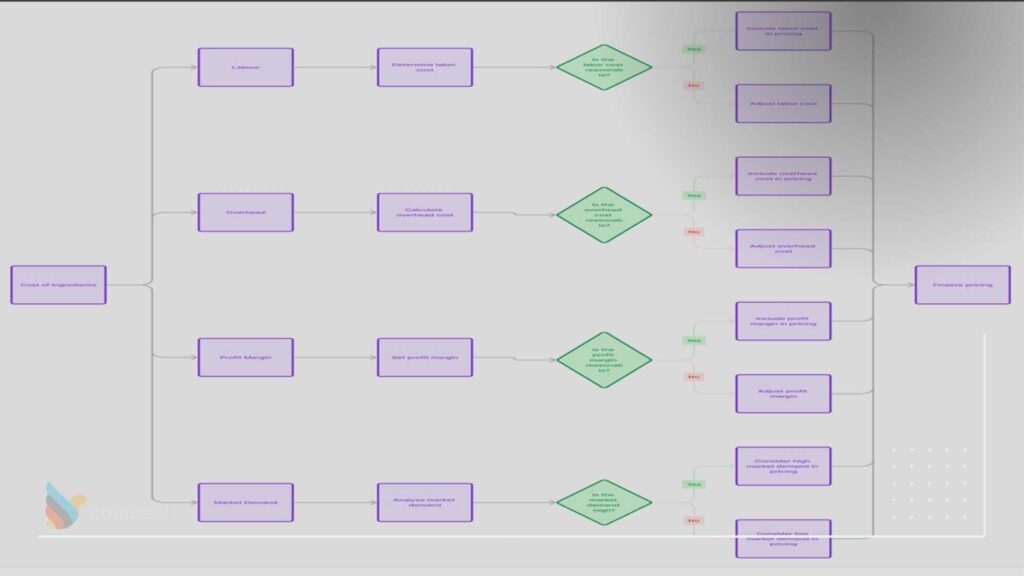How to Start a Cake Business in Nigeria in 7 Steps

by Counseal Team
Updated July 26, 2024

Do you find yourself lost in the world of flour, sugar, and butter, creating a symphony of flavours that leave people craving for more?
Or perhaps you’ve got a knack for designing and crafting edible works of art?
Running a cake business in Nigeria, like any other business, has its benefits and challenges.
In this article, we’ll guide you through the crucial steps involved in setting up a successful cake business in Nigeria. From the initial planning stages to establishing your brand in the market, we’ve got you covered.
Ready to turn your baking passion into a profitable enterprise? Grab your apron, and let’s dive into the sweet world of cake business in Nigeria!
Quick Takes
How much does it cost to start this business?
We estimate the cost of starting a bakery in Nigeria to be between ₦500,000 and ₦6 million depending on the size and scale of the bakery.
The cost of starting a small or medium-sized cake shop in Nigeria is at least ₦400,000 to ₦1 million, including the cost of the shop, baking materials, equipment, and startup ingredients. However, it can also cost as high as ₦5 million to ₦10 million for a large-scale cake bakery.
How much can you make per month?
It’s important to note that the amount you can make per month depends on various factors such as the size of your business, the number of orders you receive, and the quality of your products.
If you focus on custom work in your bakery, such as cakes for big events, you can make about ₦780,000 per month. If you simply do a few individual custom orders a week, you can expect to make approximately ₦236,280 a month, on average.
What is the minimum required to start this business?
The minimum cost required is at least ₦400,000 for a small cake bakery, including the cost of the shop, baking materials, equipment, and startup ingredients.
What are the best states to start this business?
Lagos, Abuja, and Port Harcourt are some of the best states to start a cake business in Nigeria. Lagos is the most populous city in Nigeria and has a high demand for cakes.
Abuja is the capital city of Nigeria and has a high demand for cakes because of the presence of many government officials and diplomats.
Port Harcourt is the capital city o f Rivers State and has a high demand for cakes because of the presence of many oil and gas companies.
However, it’s important to note that the success of your cake business depends on various factors such as the quality of your products, the size of your business, and the number of orders you receive.
What are the known examples of this business?
There are many examples of cake businesses in Nigeria. Some popular cake businesses in Nigeria include:
Uzzycakesnbakes: A registered product and service cake brand in Lagos State.
Diva Cakes: A cake business that specialises in wedding cakes in Lagos, Nigeria.
Cake Business Plan in Nigeria: A sample cake business plan in Nigeria and feasibility study that can access loans, grants, and proposal writing in both Nigeria and abroad.
Cakes and Cream: A cake business that specialises in cakes for all occasions, including weddings, birthdays, and corporate events.
The Cake Lady: A cake business that specialises in custom cakes for all occasions, including weddings, birthdays, and anniversaries.
Step 1: Find your Niche and Unique Style

Finding your unique niche and style is paramount. It’s like finding your unique voice in a room full of chatter.
It not only allows you to stand out but also aligns with your passion and skills. Plus, it helps cater to a specific market demand.
Take Nigeria, for instance. The cake industry is booming with various niches. From wedding and birthday cakes to anniversary and novelty cakes, the options are endless.
However, it’s not about jumping on a bandwagon. It’s about finding a style that resonates with you and your potential customers.
How do you go about it?
Start by researching. Browse online platforms like Instagram and Pinterest to see what’s trending. Visit local bakeries, attend cake expos, and follow industry experts. This will give you a sense of what’s popular and what might be a good fit for you.
So, the first step to starting your cake business? Find your niche and style. It’s a process of self-discovery as much as it is about understanding the market. And once you find it, you’re one step closer to baking your way to success.
Step 2: Plan your Business

You’ve heard the adage, “Failing to plan is planning to fail.” This rings true when venturing into the world of entrepreneurship.
Having a solid business plan is like having a roadmap to your final destination. It not only guides your decision-making but also helps you to expect potential potholes and roadblocks before they become major setbacks.
The Anatomy of a Robust Business Plan
So, what makes a good business plan? At its core, your business plan should contain a few key elements.
- Mission Statement: This is your business’s raison d’être. It outlines your purpose and the value you intend to bring to the market.
- Goals: These are specific, measurable, achievable, relevant, and time-bound (SMART) targets that will drive your business strategy.
- Market Analysis: Here, you’ll need to show a deep understanding of your target market, including customer demographics, preferences, and purchasing habits.
- Competitive Analysis: This section should summarise your competition and how you intend to differentiate your product or service.
- Marketing Strategy: Your marketing strategy outlines how you plan to reach your target audience and persuade them to buy your product or service.
- Financial Plan: This is where you outline your projected revenue and expenses, as well as any funding requirements.
The Secret to Crafting a Winning Business Plan
Now, the big question is, how do you go about creating such a comprehensive document? There are many online templates and tools you can use to guide you through the process. Counseal helps you craft a professional business plan here
But remember, while these tools can be incredibly helpful, they’re not a substitute for your unique insights and creativity.
You can also seek the advice of business consultants or mentors who can offer valuable feedback and suggestions. Tap into your network and ask for help.
In conclusion, a well-crafted business plan is an entrepreneur’s best friend. It not only helps you to visualise your business idea but also makes it easier to communicate this vision to potential investors, partners, and customers. So, take your time, do your research, and create a business plan that reflects your ambitions, passion, and dedication. Trust me, it’s worth the effort.
Ready to take the next step? Let’s dive into the nitty-gritty of starting your business in Nigeria.
Step 3: Register your Business

When starting a business, there’s an essential step that you should never overlook: registering your business.
This isn’t just a formality, it’s a crucial step in creating your corporate identity, ensuring legal compliance and opening the door to a world of opportunities. Ever thought about why this is so important?
Well, aside from the obvious legal implications, registering your business also gives you access to certain perks. These might include tax advantages, more credibility with customers and suppliers, and the ability to apply for grants and loans.
You’re also protecting your business name and, should the need arise, you’re making it easier to sell your business or pass it on.
Steps and Options for Registering Your Business
There’s a certain process you must follow when registering your business in Nigeria. Let’s look at what this entails:
- Choose a Business Name: Think carefully about this one, your business name forms a big part of your brand identity. Make it unique, memorable and representative of what your business stands for.
- Decide on a Business Structure: Will you operate as a sole proprietorship, a partnership, a limited liability company, or a public limited company? Your choice here will affect your legal obligations and tax liabilities, so do your homework.
- Select Your Business Location: Your business location can affect your tax obligations and legal requirements. So, whether you’re setting up a physical shop or an online store, your location matters.
- Get a Business Permit and Tax Identification Number (TIN) : These are legal requirements that provide proof of your business registration and allow you to operate legally.
Registering Your Business: Tips and Tricks
So how do you go about registering your business in Nigeria? Here are a few tips:
- Visit the Corporate Affairs Commission (CAC) website: The CAC is the body that oversees business registration in Nigeria. Access their services online via the CAC website.
- Consider Hiring a Lawyer: While not strictly necessary, a lawyer can help you navigate the complexities of business registration, particularly if you’re setting up a limited liability company.
Remember, registering your business is not just a prerequisite for operating legally, it’s a strategic move that can set you up for success. So, take your time, make informed decisions, and get your business registration right!
So, are you ready to get your business registered and kick-start your entrepreneurial journey? Let’s do it, because the sooner you start, the sooner you’ll be running a successful business in Nigeria!
And remember, at counseal.com, we’re here to guide you every step of the way.
The road to entrepreneurship might seem daunting, but with the right advice and a little determination, you’ll be carving your path to success in no time.
Step 4: Set Up your Kitchen and Equipment

Ever heard the saying, “A working person is only as good as his tools?” Well, in the cake business, it rings truer than ever.
Setting up a hygienic and efficient kitchen is your first step to success. A well-equipped kitchen not only eases your work but ensures that your products are safe for consumption. The last thing you want is to churn out a beautiful cake that’s a health risk!
So, where can you get the right tools to set up your kitchen? Don’t fret; there are many sources.
Online platforms like Jumia and Konga offer a wide variety of kitchen equipment at competitive prices.
If you’re more of a traditional shopper, local suppliers and wholesalers are your go-to. They often have firsthand knowledge and can give you tips on the best equipment for your specific needs.
Now, let’s talk about choosing your kitchen equipment. It’s not just about picking the shiniest tools; it’s about quality, safety, and warranty.
Before making a purchase, do a brief background check. Is the brand reputable? Do they offer a warranty? How about safety features? Remember, cheap is expensive in the long run.
Maintenance is another key aspect. Always clean and store your equipment properly after use. This will not only prolong their lifespan but also ensure your cakes are always of top-notch quality.
And hey, if you’re a newbie, no worries. There are countless tutorials online on how to use common cake making tools. YouTube is a goldmine for this. Just type in what you need, and Voila, you have a step-by-step guide right before your eyes.
Remember, the journey of a thousand miles begins with a single step. Here, setting up a hygienic and efficient kitchen. So, get out there and start equipping. Your cake business awaits!
Step 5: Create your Cake Menu

Alright, let’s dive into the sweet stuff! As an entrepreneur, one of the most exciting steps in building your bakery business is creating your cake menu.
This is your chance to showcase your unique style and niche. Wondering how you can do that? Let’s break it down.
Designing Your Cake Menu
Start by identifying your brand’s identity. Are you all about decadent, chocolaty delights? Or perhaps you’re into lighter, fruit-infused bakes. Let your brand’s identity be your guide in designing your menu. Be consistent with your selection. Remember, your menu reflects your brand. It’s what sets you apart from the competition.
Testing Your Cake Menu
Before you can serve your cakes to customers, you need to make sure they’re up to par. That’s where testing comes in. Invite friends, family, or even a group of willing taste-testers from your local community. Listen to their feedback and tweak your recipes accordingly.
Pricing Your Cake Menu
With pricing, it’s all about striking a balance. You want to make sure your prices are competitive but also reflect the quality of your cakes. Consider the cost of ingredients, your time, and overhead expenses when setting your prices.
Creating a Varied and Appealing Cake Menu
Variety is the spice of life, and the same applies to your cake menu. Offer a mix of flavours to cater to different taste buds. You might have a range of options from classic vanilla and rich chocolate to local Nigerian flavours like zobo or coconut.
Don’t forget about fillings, frostings, and decorations. These are the elements that can take a simple cake to a whole new level of deliciousness. For example, a vanilla cake might seem plain, but add a mango filling, coconut frosting, and a sprinkle of toasted coconut on top, and you’ve got a tropical delight.
Examples of Successful Cake Menus
For some inspiration, let’s look at some successful cake menus from Nigerian entrepreneurs. Take Aduke’s Bakery, for instance. They’ve carved out a niche for themselves by specialising in traditional Nigerian flavours. Their menu boasts a range of cakes from coconut and pineapple to zobo and hibiscus.
Another great example is the Sweet Cravings Dessert House. They’ve mastered the art of variety with their extensive menu featuring everything from classic red velvet and chocolate cakes to unique creations like their signature “Sweet Cravings Special” – a chocolate cake filled with cream cheese and frosted with peanut buttercream.
Creating your cake menu is a fun and creative process. It’s your opportunity to showcase your baking skills and your unique style.
So, get your apron on, start experimenting, and create a cake menu that your customers will love!
Step 6: Price Your Cakes

The art of pricing your cakes is a critical step in establishing your baking business. It’s not just about slapping on a price tag; it’s about understanding the value of your product and ensuring it’s priced competitively.
Here’s why: under-pricing can lead to business losses while overpricing might turn away potential customers. Tricky, isn’t it?
Crunching the Numbers: Factors to Consider
Several factors come into play when pricing your cakes. Here are some key considerations:

- Cost of Ingredients: This is straightforward. You need to factor in the cost of all the ingredients used in making your cake.
- Labour: How long does it take to bake a cake? Remember, your time is valuable, and you should factor it into the cost.
- Overhead: Don’t forget about the costs that keep your kitchen running. Think electricity, water, and rent.
- Profit Margin: This is your reward for your hard work. Aim for a 20-30% profit margin.
- Market Demand: If your cakes are in high demand, you might command a higher price.
Finding the Sweet Spot: Pricing Tips
Getting the pricing right can feel like trying to find a needle in a haystack. Thankfully, there are tools and strategies to help you out:
- Cake Pricing Calculator : Online calculators can be a lifesaver. They do all the heavy lifting, giving you a fair estimate of what you should charge. Here’s a link to a reliable online cake pricing calculator that you’ll find helpful.
- Market Research: Look at what your competitors are charging. This gives you an idea of the going rate and can guide your pricing.
- Formulas : Some entrepreneurs swear by formulas, such as multiplying the cost of ingredients by a certain factor. Experiment with these to find what works best for you.
Remember, the goal is to balance making a decent profit and providing value for your customers. It’s a bit of a tightrope walk, but with practice and patience, you’ll find your sweet spot.
Step 7: Market and Sell your Cakes

The heart of any profitable business venture, like your cake business, is not just manufacturing stellar products, but also the art of getting them into the hands of your customers. This is where marketing and selling your cakes become crucial.
Harnessing the Power of Digital Channels
In the digital era, the internet provides an extensive range of channels for marketing and selling your cakes. From social media platforms like Instagram, Facebook and Twitter to online marketplaces like Jumia and Konga, the options are almost limitless.
Websites and blogs also offer a platform to showcase your mouth-watering creations and share engaging content. A well-structured website can serve as your virtual shop where your customers can place orders.
Branding: More Than Just a Name
Creating a brand identity goes beyond just coming up with a catchy business name. It involves crafting a unique logo, an interesting slogan, and even the packaging of your cakes.
These elements work together to tell your brand’s story and set you apart in the Nigerian cake market.
Remember, the goal is to create a brand that resonates with your target audience and keeps them coming back for more.
So, as you whip up your next batch of cakes, remember, the secret ingredient to your success might just be a well-executed marketing strategy.
After navigating through the stormy seas of starting a business, the sight of the shore is always a rewarding spectacle. We’ve journeyed together, exploring the steps to launch a cake business in Nigeria.
From identifying your target market, developing a unique selling proposition, to registering your business and mastering the art of marketing.
Now, it’s your turn to get baking!
The cake industry in Nigeria is ripe with opportunities, and with the knowledge you now possess, you’re more than equipped to take a slice. Remember, the ingredients to success include a blend of dedication, creativity, and an unyielding spirit of entrepreneurship.
Still craving more? For a more in-depth guide on how to start a cake business in Nigeria, head over to counseal.com. There, you’ll find a banquet of resources tailored to help you turn your sweet dreams into a tangible reality. After all, the proof of the cake is in the eating. So, what are you waiting for? Get started on your cake business today!
Remember, at Counseal, we’re always here to provide the icing on your entrepreneurial journey.
Frequently Asked Questions
How much does it cost to start a cake business in Nigeria?
The cost of starting a cake business in Nigeria depends on various factors, such as the size and scale of your business, the type and quality of your materials and equipment, the location and rent of your kitchen, the legal and tax fees, the marketing and advertising expenses, etc.
According to some sources, the average cost of starting a small-scale cake business in Nigeria can range from N100,000 to N500,000 . However, this is only an estimate and you should do your own research and budgeting before starting your cake business.
How do I find customers for my cake business in Nigeria?
One of the most effective ways to find customers for your cake business in Nigeria is to market and sell your cakes online. You can use various online platforms, such as social media, websites, blogs, etc., to showcase your cake menu, style, and brand identity.
Use online tools, such as email marketing, SEO, online ads, etc., to reach and attract your target audience. You can use word-of-mouth, referrals, testimonials, and reviews to build trust and loyalty among your customers. You can also network and collaborate with other cake entrepreneurs, local bakeries, event planners, etc., to expand your customer base and exposure.
How do I choose a niche and a style for my cake business in Nigeria?
Choosing a niche and a style for your cake business in Nigeria is a crucial step that can help you stand out from the competition and cater to the specific needs and preferences of your customers. You should choose a niche and a style that suits your skills, passion, and market demand.
You can research your niche and style by browsing online platforms, visiting local bakeries, following trends, etc. You can also use online tools, such as surveys, polls, quizzes, etc., to get feedback and insights from your potential customers. Some examples of popular cake niches and styles in Nigeria are wedding, birthday, anniversary, novelty, traditional, contemporary, ethnic, minimalist, etc.
How do I price my cakes correctly and competitively?
Pricing your cakes correctly and competitively is important to ensure that you cover your costs, make a profit, and stay ahead of the competition. You should price your cakes based on various factors, such as the cost of ingredients, labour, overhead, profit margin, market demand, etc. You can use online calculators, tools, or formulas to help you calculate your cake prices.
Research your competitors and see how they price their cakes. You should also consider the value and quality of your cakes and how they differ from your competitors. Be flexible and willing to adjust your prices according to the changing market conditions and customer expectations.
How do I register my cake business and comply with the legal and tax requirements in Nigeria?
Registering your cake business and complying with the legal and tax requirements in Nigeria is essential to avoid any legal issues and penalties. You should register your business and get a business permit, tax identification number, etc., from the Corporate Affairs Commission.
You should also choose a business name, structure, and location that suit your business needs and goals. Consult a lawyer or an accountant to help you with the legal and tax aspects of your business. You should also keep track of your income and expenses and file your tax returns on time.
How do I set up a hygienic and efficient kitchen and equipment for my cake business?
Setting up a hygienic and efficient kitchen and equipment for your cake business is important to ensure that you produce high-quality and safe cakes for your customers. You should set up your kitchen and equipment according to the health and safety standards and regulations in Nigeria.
You should also choose and maintain your kitchen and equipment based on the quality, safety, warranty, etc. Invest in some common cake making tools and techniques, such as mixers, ovens, pans, moulds, spatulas, piping bags, nozzles, etc. You should also clean and sanitise your kitchen and equipment regularly and properly.
How do I create a delicious and diverse cake menu for my cake business?
Creating a delicious and diverse cake menu for your cake business is important to showcase your niche and style and attract and satisfy your customers. You should create your cake menu based on your skills, passion, and market demand. You should design, test, price, and update your cake menu regularly and accordingly.
You should also choose different flavours, fillings, frostings, decorations, etc., to create a varied and appealing cake menu. Consider the season, occasion, and theme of your cakes and customise them accordingly. You can include some examples or photos of your cake menu in your online platforms and marketing materials.





